In the 1830s, the French political philosopher Alexis de Tocqueville was the first to observe the unique role of religion in American society. Faith communities he visited during his travels across the country seemed to provide a unifying purpose, a coherent moral vision and strong social bonds. Moreover, these faith communities ensured that America was more than just a collection of individuals living a solipsistic existence. He saw that churches contributed mightily to people’s understanding of their common identity.
Almost 200 years later, faith communities still play this role. Today’s sociologists tell us that they are needed more than ever as more of our citizenry becomes increasingly isolated, divided and informationally siloed by algorithms, or worse yet, as certain populations are forgotten or written off altogether.
A healthy society, and by extension a healthy democracy, requires its people to have community, connection, belonging and a sense of responsibility toward the well-being of others.
We see faith communities help to accomplish this every day, all across our country. This includes St. Jude Church in Tuba City, Arizona, located on Navajo Nation, one of hundreds of faith communities supported by Catholic Extension Society that improves the lives of people far beyond its physical walls. As depicted below on the cover on the Spring 2025 issue of our Extension Magazine, the cross atop the steeple is a beacon of light and hope to the surrounding community.
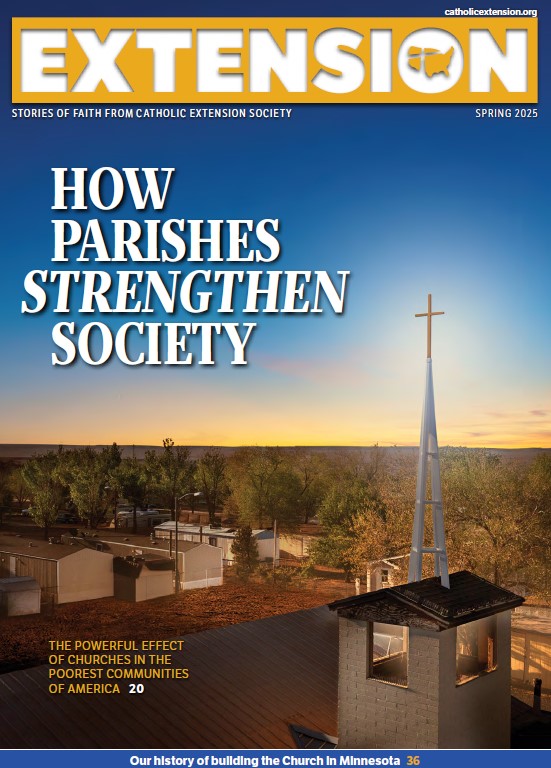
Catholic Extension Society works with many religious sisters who combat loneliness and build human connection when they are deployed to the economically poorest and most marginalized communities. One of the first things they do is knock on doors, meet strangers and talk to them about their hopes. They confront people’s suffering head-on. More importantly, they create communities capable of dreaming together.
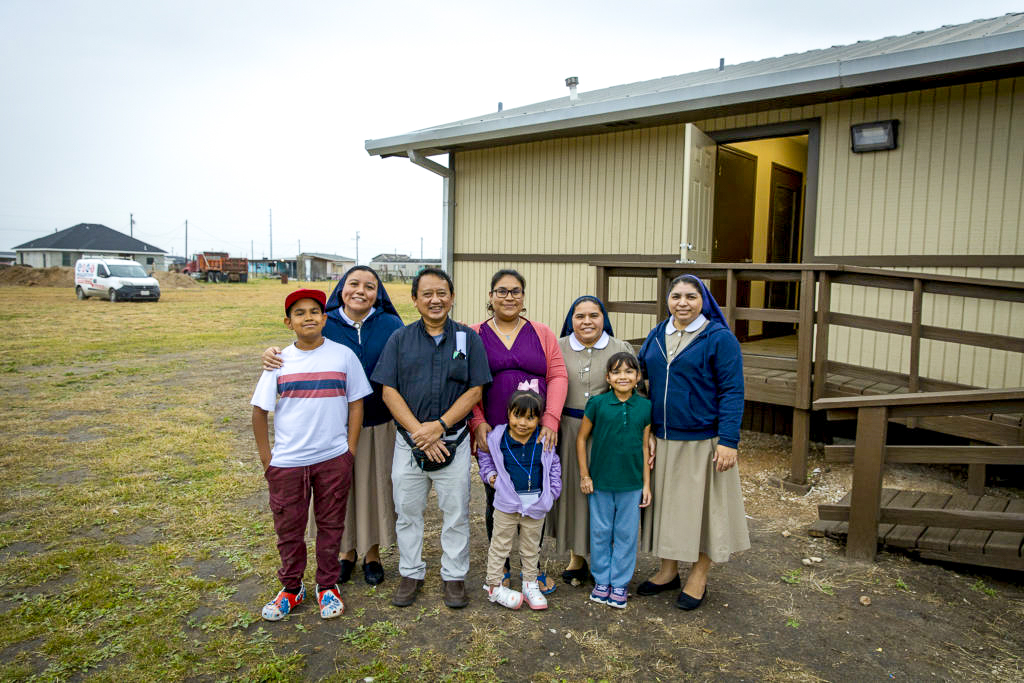
For example, in Donna, Texas, a group of sisters supported by Catholic Extension Society visited 2,000 homes and discovered a common feeling of isolation. The sisters began working to build a place where families can go to worship, children can play and all can forge tight community bonds. The center, called “Plaza Amistad” (Friendship Plaza), will open this year.
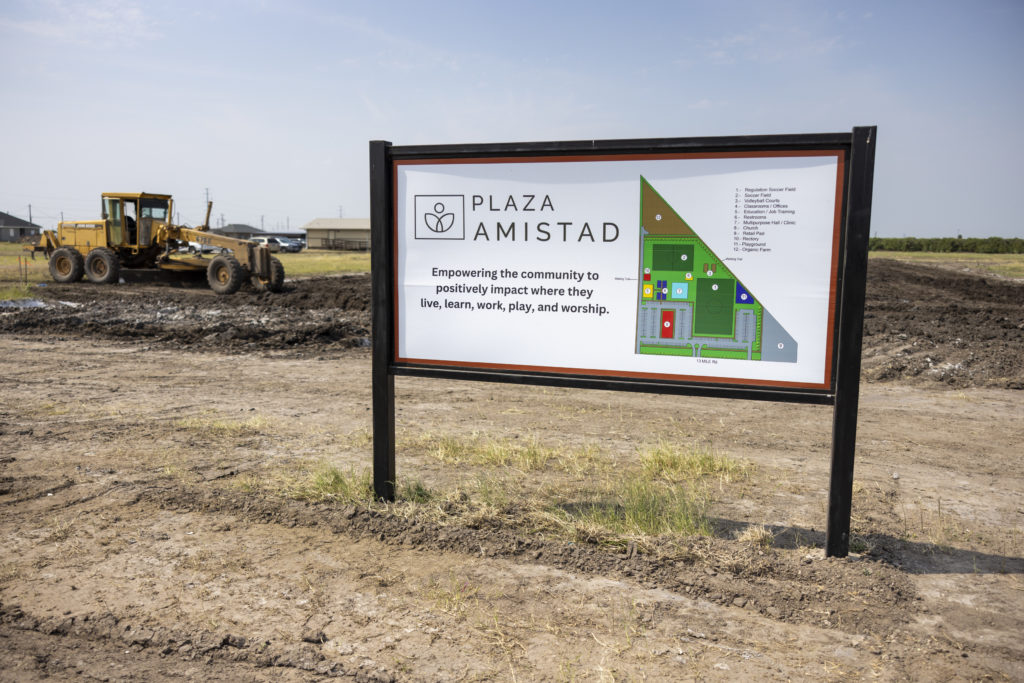
Bridging Social Capital
A society as diverse as ours (racially, politically, economically, etc.) needs places where diverse people can come together and “rub elbows,” lest our society devolve into one defined by our suspicions of one another, as opposed to what unites us.
Harvard University social scientist Robert Putnam describes two different types of organizations: those that specialize in creating “bonding social capital” (connections with those we already know), and those that create “bridging social capital” (connecting with those we do not already know).
Bridging social capital, he says, is the more difficult exercise because it requires building relationships with people who we would not normally associate ourselves with. Yet, it is the most valuable kind of social capital for the health of our diverse American society.
Churches are excellent contributors to bridging social capital. According to the Pew Research Center, there are many faith groups that are very racially diverse. In fact, the Seventh-Day Adventist Church has the highest diversity rate. The Catholic Church in America, the nation’s single largest denomination, is also an extraordinarily diverse group of people. A recent study found 36 percent of Catholic churches are multiethnic.
For example, in Jonesboro, Arkansas, there are many Asian, Anglo and Hispanic families in the same parish. They host weekly potluck dinners, where parishioners representing a multitude of nationalities bring their favorite home-cooked dishes. This is what “bridging social capital” looks like in practice.
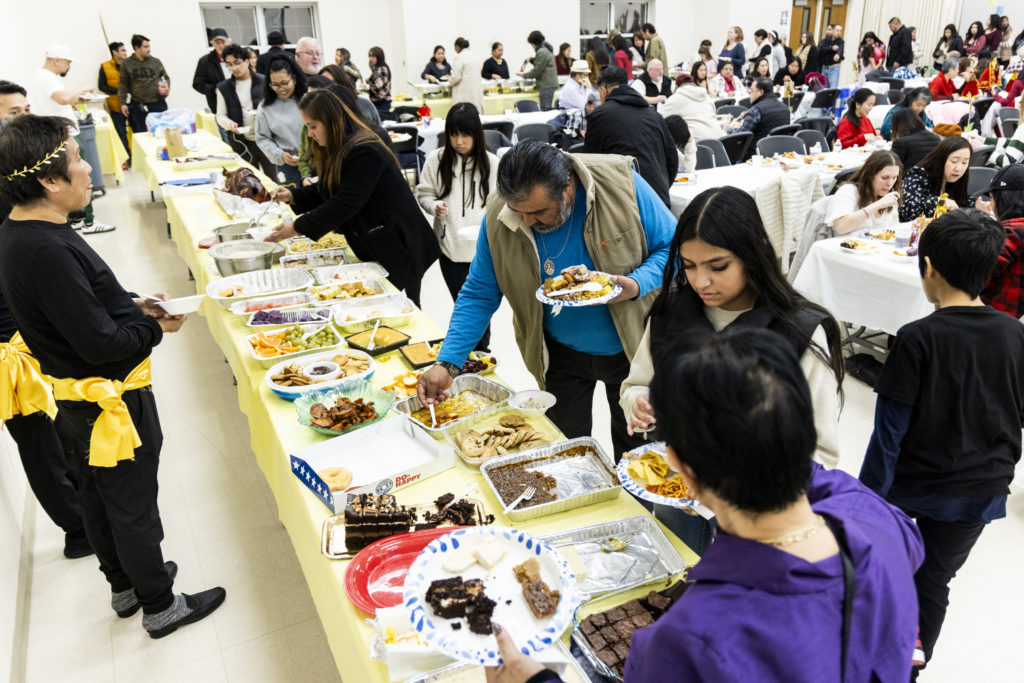
The Economic Halo Effect
Faith communities are also places where people can come together to tackle common problems and offer charity and works of mercy for marginalized people in our society. Partners for Sacred Places, an organization that supports houses of worship, worked with University of Pennsylvania researcher Ram Cnaan to conduct a study that measured the economic impact of congregations stewarding older and historic properties. They coined the term “economic halo effect,” which is the quantifiable financial impact that churches provide to their communities through services and support. They found that the average economic halo effect of an urban historic sacred place is more than $1.7 million per year.
In many areas supported by Catholic Extension Society, the local Catholic church is often the only place for miles that offers the wider community a place to gather for anything—from joyous celebrations to funerals.
These little churches are often the only place that provides free food, water, clothing and other basic life essentials, like the food pantry at Holy Rosary Church (pictured below) feeds more than 800 people a month in a neglected neighborhood in Birmingham, Alabama.
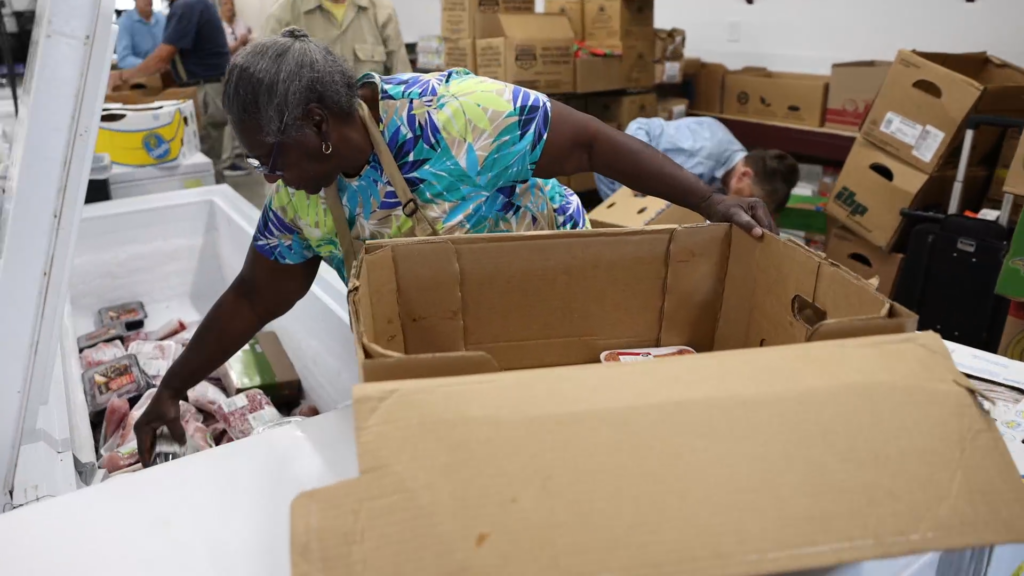
Their economic halos reach far and wide.
Reversing loneliness among youth
And let’s not forget about the positive influence of churches among young people. Psychologist and author Jean Twenge has researched Gen Z, whom she refers to as “i-Gen” because they are the first generation that cannot remember a time before social media and smart phones.
Ironically, our most digitally connected generation of all time, she found, is also the loneliest. Rates of anxiety, depression and isolation among this population have spiked exponentially. But her research shows that there are antidotes to these dark forces in young people’s lives.
Years of research by sociologist Christian Smith also offer similar conclusions about the benefits of religion in the lives of young people.
Below, parish youth joyfully dance together to honor Our Lady of Guadalupe at Holy Rosary Church in Fairmont City, Illinois.
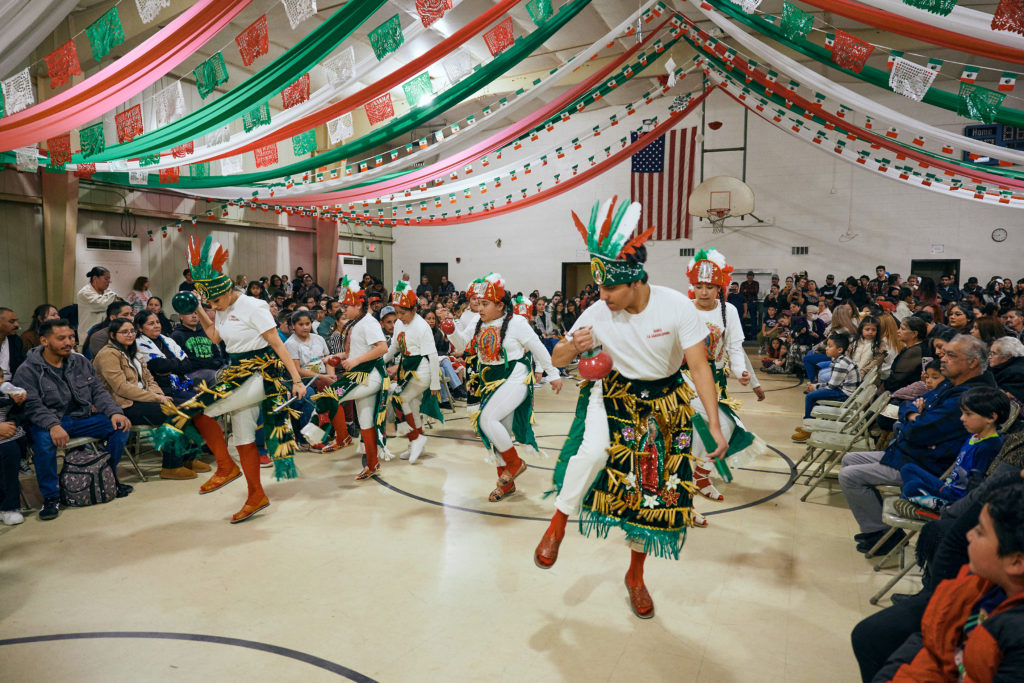
It turns out that we are all better off when we have connection to and support from others.
So, to answer the question— do faith communities strengthen our society, and ultimately our democracy? The answer is a definitive “yes.” Even as formal religious groups have experienced membership declines, their role in our society is as important as ever.
When we build up vibrant Catholic faith communities, we truly are transforming the country for the better.
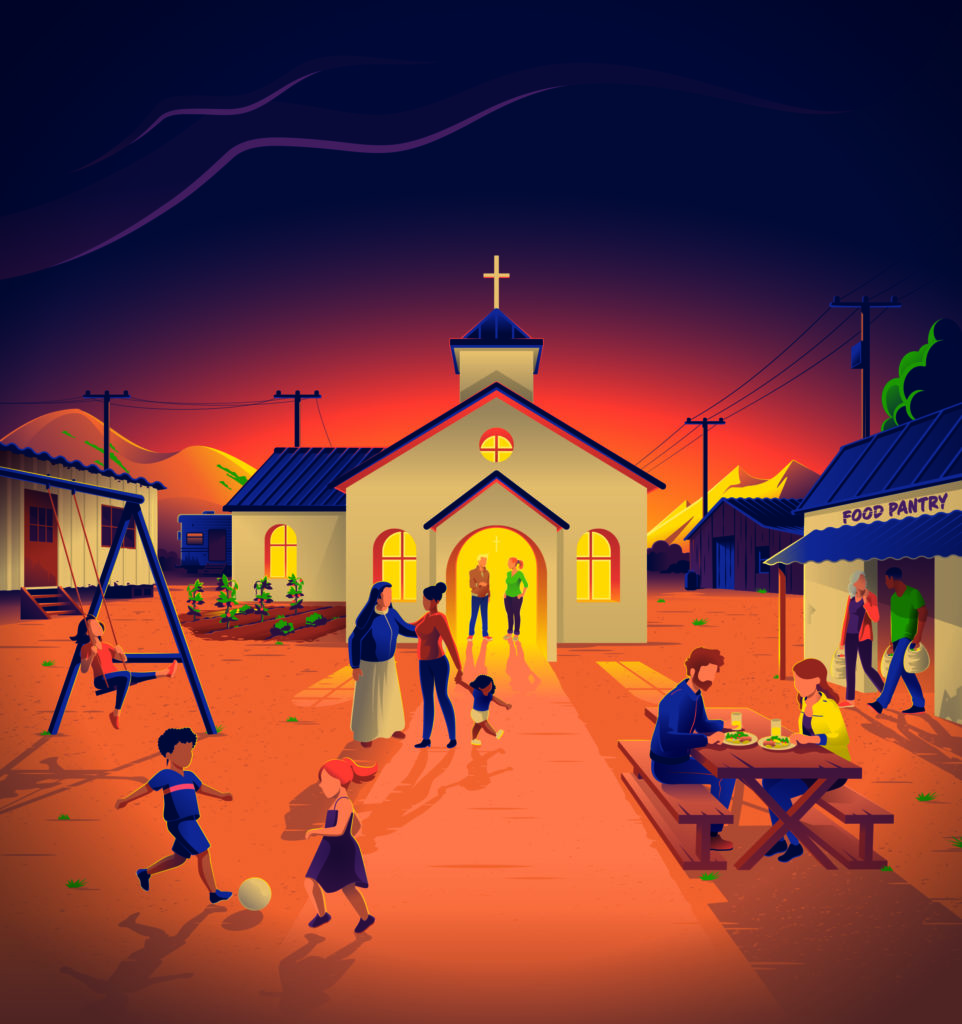
Catholic Extension Society works in solidarity with people to build up vibrant and transformative Catholic faith communities among the poor in the poorest regions of America. Please consider supporting our mission!


